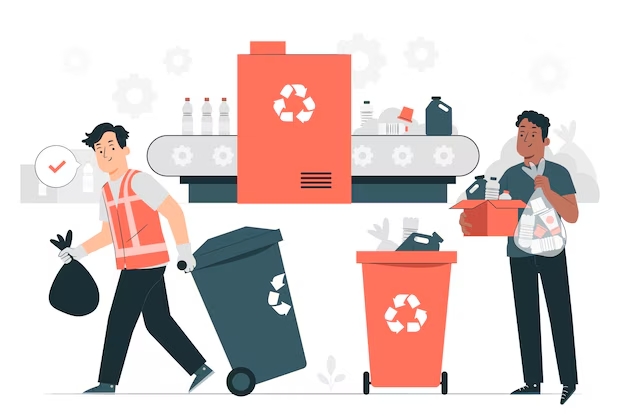As India’s coastal regions grapple with mounting waste
challenges, the need for effective recycling initiatives has never been more
pressing. These areas, rich in biodiversity and economic potential, are
increasingly threatened by pollution, particularly from plastics. Financial
support for Coastal Waste Management is critical to safeguarding these
environments while fostering community involvement. This article explores the
guidelines for such support and highlights the role of community engagement and
the Indian nexus in driving sustainability.
The Urgency of Recycling in Coastal Areas
India’s coastline is a vital resource for fishing and
tourism and a natural habitat for various species. However, rapid urbanization
and inadequate waste management practices have led to significant pollution.
Recycling can mitigate these issues by reducing waste, conserving resources,
and creating economic opportunities. Effective recycling initiatives are
essential for maintaining the health of coastal ecosystems and the livelihoods
of local communities.
Guidelines for Financial Support
Recognizing the critical need for waste recycling, the
Indian government has established guidelines aimed at facilitating financial
support for coastal waste management initiatives. Key components of these
guidelines include:
- Funding
Opportunities: The government, alongside non-governmental
organizations, offers grants and subsidies to support recycling projects
in coastal regions. These funds can help establish recycling facilities
and improve existing infrastructure.
- Public-Private
Partnerships (PPPs): Collaboration between government entities and
private companies can enhance the effectiveness of recycling initiatives.
Financial incentives for businesses that invest in sustainable practices
can lead to innovative solutions for waste management.
- Community
Capacity Building: Financial support should prioritize educational
initiatives that empower local communities. Workshops, training programs,
and awareness campaigns can motivate residents to participate in recycling
efforts actively.
- Monitoring
and Accountability: Establishing robust monitoring mechanisms is
essential to assess the impact of funded projects. Regular evaluations
ensure transparency and help identify areas for improvement.
The Role of Community Engagement
The success of recycling initiatives is closely tied to
community involvement. Engaging local residents fosters a sense of ownership
and responsibility toward waste management. Financial support can be directed
towards initiatives that encourage this participation, such as:
- Community
Clean-Up Drives: Funding for local clean-up events can mobilize
community members to take action and raise awareness about the importance
of recycling.
- Incentive
Programs: Implementing reward systems for households that actively
recycle can significantly increase participation rates.
- School
Partnerships: Collaborating with educational institutions can instill
sustainable practices in children, creating future advocates for
environmental stewardship.
Conclusion
Financial support for recycling initiatives in India’s
coastal areas is essential for promoting sustainability and protecting valuable
ecosystems. By following established guidelines and prioritizing community
involvement, stakeholders can create effective waste management systems.
Engaging with the Indiannexus through collaborative efforts and information sharing will
further amplify these initiatives, fostering a cleaner and greener future for
coastal regions. Together, we can transform waste challenges into opportunities
for sustainable development.











